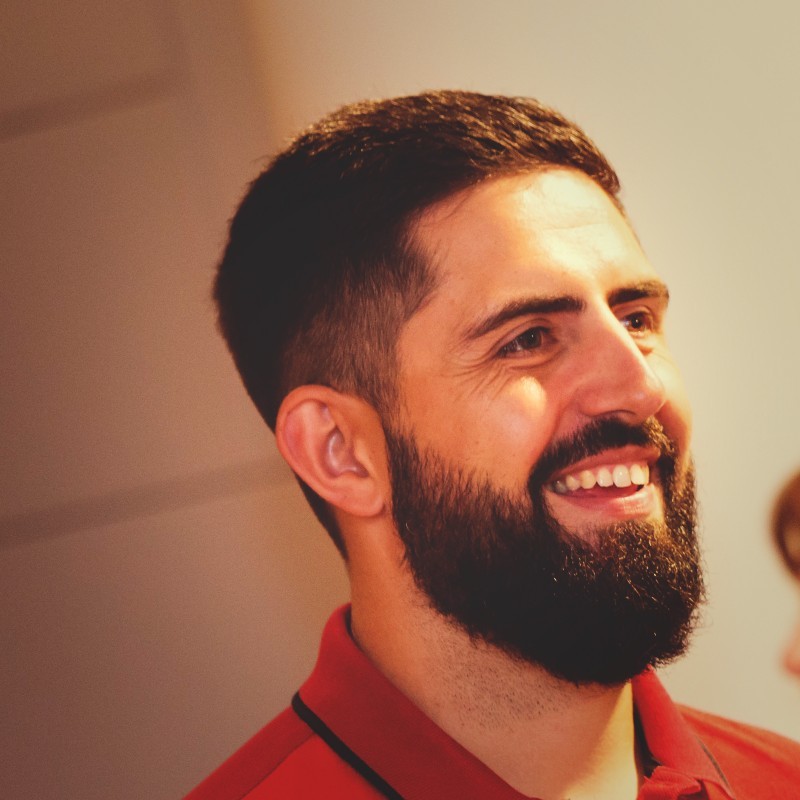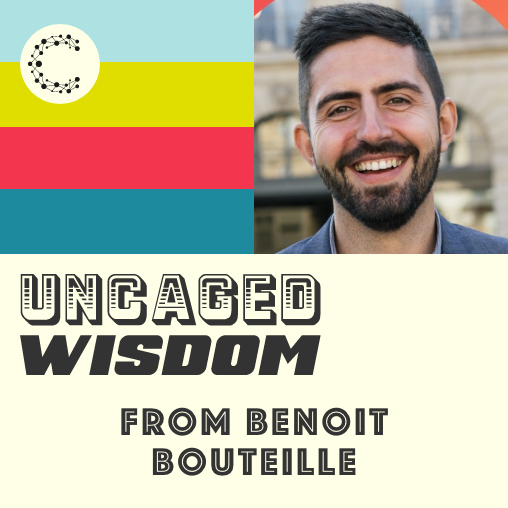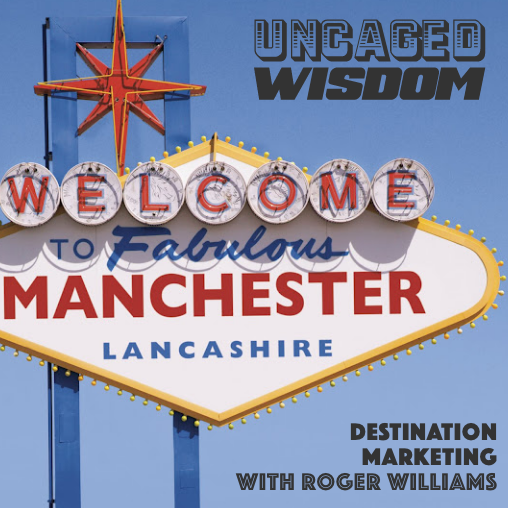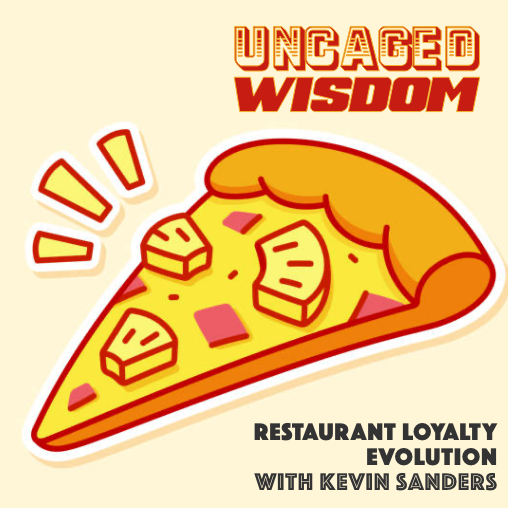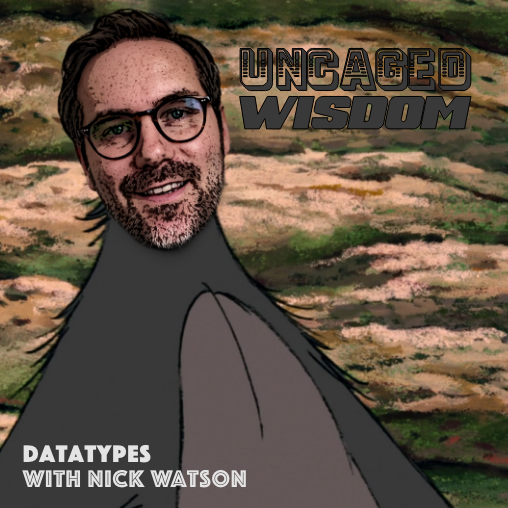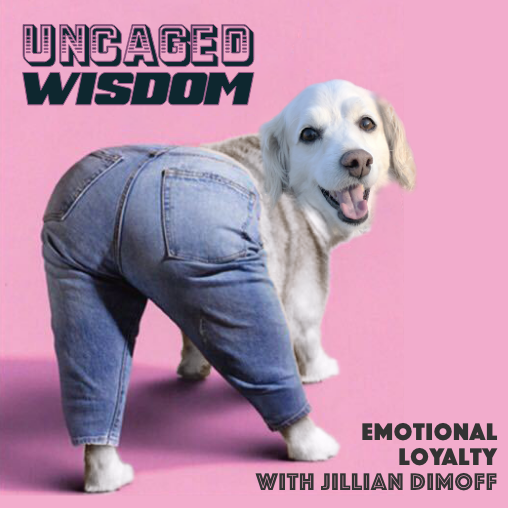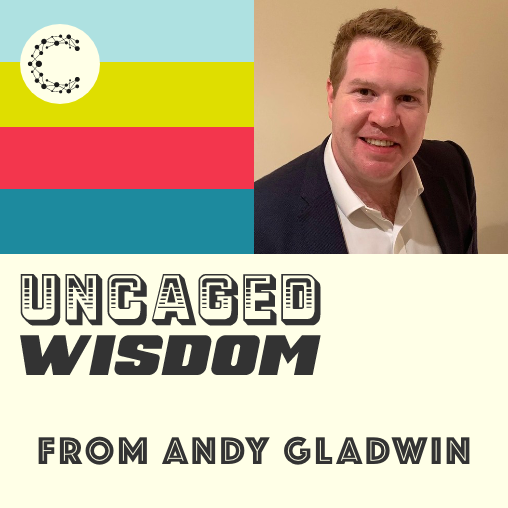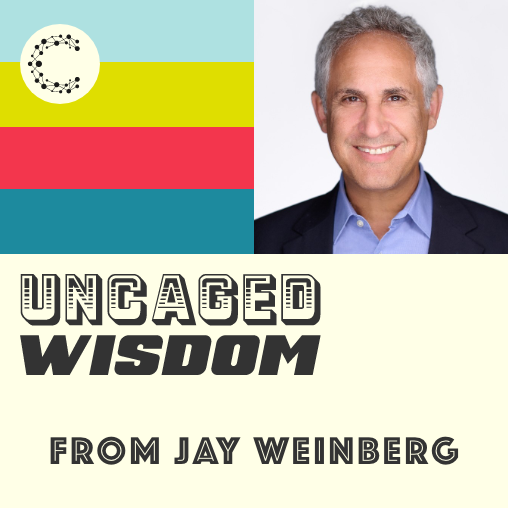Moving Past Batch and Blast w/ Benoit Bouteille
- 0.5
- 1
- 1.25
- 1.5
- 1.75
- 2
Julian: The only thing I lack is a seriously good piece of facial hair like yourself. Over the next few months, our audience can watch me slowly grow out my ginger clumps.
Speaker 2: Uncaged Wisdom, Cheetah Digital's podcast for modern marketing.
Julian: Benoit, thank you for joining us today on this latest episode of Uncaged Wisdom, and a sort of reciprocal Cheetah Digital Tinyclues relationship going, because obviously, we had our wonderful Richard Jones on your own podcast, The State of CRM. But thank you for joining Kayla and myself today.
Benoit: Thank you for having me, Kayla, Julian. Really happy to be on your podcast.
Julian: And for everyone who's listening, you can tell that Benoit and myself both have a lovely accent. We've both got kicked out of our respective countries. I'm currently in Dallas, and Benoit, you're in New York, are you not?
Benoit: Yeah, correct. I'm in New York, and I'm from France, as you can hear. Yeah, I moved in the US a little bit more than two years ago.
Julian: We are going to be talking broadly, we've sort of called this Moving Past Batch and Blast, which is actually quite catchy. Although we work with great brands who are getting more sophisticated in their efforts, it does feel that we are still too reliant on old school batch and blast, and we wanted to explore that topic today.
Benoit: Everyone is talking about customer centricity, providing good effort to be sure that their customers have the best experience they can. And at the same time, what we see in the practice doesn't really always match this mindset and this approach. And yeah, I think that's, we'll get a little bit more into detail, but this is due to a conflict between the intention from marketers to be more customer- centric and the reality of the business. So, the internal stakeholder requests or this goal of making progress in term of revenue and business. And this conflict can be addressed, but that's not yet the case for everyone.
Julian: Before we get into that, though, Benoit, Kayla would like to ask you one of our traditional icebreaker questions.
Kayla: As Julian said in the beginning, Benoit, you have your own podcast. I know Julian and I find ourselves in some hiccups occasionally, so I'd love to hear, what's the craziest thing that's ever happened on your podcast?
Benoit: Oh, good question. Maybe the best example I can have is that I'm currently in our office in Brooklyn, and we have our own office in a shared building. And we have the guys entering the office to just clean up the day and the desk, and then we are in recording with the video, the light, and you have the door opening and the guys just showing up in the background, saying," Oh, okay." So, we'll have to maybe do something and redo the segments. But yeah, nothing really crazy.
Julian: That is a good one. Especially when everyone doing interviews from home, the classic kids or pets come in, and then they slowly go back.
Speaker 5: Minister David Cameron was talking about, oh, I'm really sorry. That's my son arriving. Sorry. Really embarrassed. Sorry. Hold on one second. Sorry.
Speaker 6: Can I have two biscuits?
Speaker 5: Yes, you can have two biscuits.
Benoit: Next investment is to have this red light," On air."
Julian: Would you like to sort of introduce a little bit about yourself and a bit of the adventure you've taken? You've already mentioned that you're two years into your American stint, but also, you had a good time with Tinyclues and other places in France before.
Benoit: I started my career a long time ago in marketing, and in CRM especially. I worked for B2C retailers, e- commerce especially, for more than 12 years back in France and in Europe, developing some business online for different type of product and business retailers. And then after 12 years, this opportunity to join, actually, a company, Tinyclues, I was using, I was client. I was using the platform at this time already as a client, and really, that's matched my vision of the CRM practice, which really lead us to what Tinyclues do, what we provide, what we are doing. So, we are a CRM technology company that's helped marketers to achieve their business goal by staying customer- centric. And if I say it in another way, what we help our clients to do is to better target their campaign so they can send more messages, generate less fatigue and generate more business. So, that's really something that is at the core for our organization today, that's how to avoid and get away from the batch and blast, and to continue to make progress in your CRM strategy. So, we help our clients to have a better personalization experience with their own clients, their customer, by helping them to have better campaigns, and that's across all channels. So, some clients are working with us to do email, for sure, but also direct mail, SMS, push notification, Facebook campaigns, all channels. CRM, it's not email marketing, that's really all channels. And at Tinyclues, I'm VP of customer experience, managing marketing and customer success. So, the team of customer success is managing the clients, helping our clients to evolve in their strategy. And at the same time, as you said, hosting a podcast, doing a ton of steps to evangelize the marketing practice evolutions.
Kayla: Benoit, when we were talking earlier, we talked a little bit about bad habits. So, there's kind of this conversation around the habit of wanting to just keep sending more and keep doing the same thing over and over. Can you talk to us a little bit about that, and kind of what you're seeing in the market?
Benoit: Yeah. And I really think that's bad habits to, not to send more, but to send more the way it's done and sending more mass email. And I think that's important, to just stop one minute and what is the reason, why is the roots of these habits? And I'm sure everyone in the audience, every marketer knows and wants to be more customer- centric, to provide a better experience. And the reality is that being customer- first, being really focused on their customer, it's really complicated to achieve if they don't manage all the pressure. That's a lot of pressure. You have always someone from the commerce team saying," Oh, I want to promote this product. This category need to be top of mind of our clients. We have a deal with these brands or this partner that's just paying us to blast the entire database, to promote the product, to showcase this offer." And the only easy reply to that is," Okay. We need to send a blast. We need either do multiple blasts in the day or in the week, or build this skyscraper email." This email that you can scroll for one kilometer and you have 45 offers, and nobody saw the second one, maybe, because nobody is caring. But you are still," Oh, I did my job because I put that in the creative." And these bad habits is hard to fight because of this internal pressure and this need of making more business. Fortunately, there is a way, there is a practice. There are strategies to get away from that, but that's complicated. And that require really time for marketers to think about it and to implement it. This mindset of always progressing, I mean, we can call that a lot of different ways, step of progress or whatever, but as a marketer, you are in a business that can be B2C, B2B. I mean, I'm doing marketing for B2B company, but I was in B2C before, and our clients are in B2C. And what we see is that everyone wants to progress. The game played here, that's an infinite game. There is no end. So, everyone wants to do better than the previous month. So, if your timeline is last quarter, what's the result of the quarter after quarter, or what's the results year over year? Whatever the size, the length of the timeline, you want to progress. And what surprise me is that on one end, every marketer wants to progress, do better than the previous period, whatever the period is. And at the same time, the strategy they apply is copy and paste what they'd done last year or the previous quarter. How do you expect to have a different result, increase in revenue, by just copy and pasting what you've just done the previous month? So, that's something that doesn't make sense. I mean, that's not making sense to me.
Julian: You put it in very nice terms of, yeah, we are constantly, there is the drive in our business and industry to progress, and actually genuinely to progress, to evolve or to develop what we're doing, yet for very good reasons, and it's not always the people's fault, the marketer's fault, but they'll get caught in doing the same thing over and over again. And if there's another thing that we can sort of guarantee with the world of sending out lots of communications that are similar over and over again with a copy and paste, is the rule of diminishing returns, isn't it, eventually? If you're not changing with the times, your results are going to go down in a time where you're trying to get more and more. So, the pressure increases. And before you know, you're just repeating the same habits, perhaps even increasing the volume or the time of week, which you get yourself in a bit of a trap.
Benoit: My point of view on what's triggered the issue and the evolution of the marketing, because the tool out there, I mean, for sure, Cheetah is a great platform, we at Tinyshoes have another solution, and I can name dozens of good solution that help to be customer- centric. Why the technologies exists and still marketer are not choosing it for what it's built for. I mean, how many clients, I don't know if that's your case, but how many clients in the inaudible come to you saying," Oh, that sounds good, but I want to use your tool to do my exact same inaudible that last year."
Julian: We love the vision, and we've bought into the vision that you're selling, which is why we might be going with you rather than our existing or another option that we had. But the first thing they are most concerned about, again, for very good reasons, is keeping that status quo of what they were doing before.
Benoit: Get back into the CRM thing, the fact that we want to progress, this system of progress and evolution, and we want to go back to how it applies to CRM. Challenge the status quo, okay. You are sending five mass campaign per week, last quarter. Progressing, it's not sending more mass campaign. Yes, that will help you to achieve better business results, better revenue maybe, immediately. But on the long term, that's a dead end. And that's a dead end because, sooner or later, you'll reach the limits of this strategy. So, you need to get away from that. And if I can explain it a bit more in detail that, if last month you were sending three months email batch and blast per week, maybe this month's sending five, you still have room in your calendar, some of your database will still open it, reply to that, click, convert on your website or show up in your inaudible. Who do you do next? You will still have to improve your revenue. You still want to make progress. So, the next step is, you were last month at three campaign, this month at five, next month, you do what, seven? And then, so what? There are not eight or 10 days per week. That's seven. So, the next step is to do, what, two blasts per day? I mean, you see where I am going. There is something, I mean, sooner or later, you will hit this wall. And this wall is just the limit your brand wants, as someone who said, stop, we can't do more because you are damaging your database. I mean, the experience with your customer is already bad. It's just bad. Promoting, pushing all this email, that's providing you can work on the creative, all day long, that's not a good experience. That's some time just accept to just shut up. I mean, don't send this message. That just not the right timing. That's not real event.
Julian: And of course, linked to that is the relationships that you have with your customers. The reason they're not performing as well, all these many, many messages because people are getting sick to death of them because they're fed up with that being through their letter box, in their inbox, or however they're receiving them. And it doesn't matter if you're changing that up, until you start refreshing and perhaps looking for ways to personalize or to send less but say more.
Benoit: inaudible And that is just human relationship. When you are in contact with one in relationship, that can be family member, that can be a loved one, whether you are just dating with someone, are you texting them twice a day and they don't reply, and then you continue and so on and so forth and you'd get no reply. I mean, just stop, accept to give room, let them breathe. That's the same for your customer. And the experience will be worse and worse if you insist. So, think about that as what you are building as a relationship with your customers.
Julian: If there's one thing that we want to hear from, it's dating tips from a classy French man.
Kayla: Kind of talked about what we should be doing in a short- term perspective. But what about a long- term kind of, what's the long game at all of this? What should people be looking at when it comes to tactics for personalization and upfront investments?
Benoit: Being relevant to your customers. So, that's mean getting away from the batch and blast, doing more targeting and more targeted campaign. That's just an easy concept. As a business, you have offered to promote. That can be the last shirts, you have a discount on it, or you have an offer for this nation and hotel in a nice place in Florida, whatever the offer you have to promote, you need to find the right people to send this offer to. There are lots of different ways to do that. That segmentation, that's it, that's segmentation. There is always segmentation. I would say that segmentation I was doing in 2006 or seven, where you would just be," Ooh, bought this product in the last year." And you just select all of these customer and you send the same type of products, and it works, but that's not enough. And that won't help you to grow your business, because if you are contacting again and again the same people for the same offer, how do you expend that? That doesn't work. And the technology exists out there. I mean, there are different approach to that. That can be, I mean, the data science and the machine can help and give superpower to marketers to do that. But back to the strategy that, if you reduce, you narrow down the segments, maybe tomorrow you start with two targeted campaign and you have big segments. The next step would be to do three or four, and you will reduce and be more precise, more accurate in targeting. At the end of the day, you will have better results because you send the right offer to the right person, better reaction, better email KPIs, better convention, and no fatigue, because people are also, I mean, marketers can mismatch pressure and fatigue. Pressure, that's the number of emails sent, so that's easy to calculate. That's in your tool, your sender tool, that's how many messages you sent. The fatigue is decimal, and we can receive, with Julian, or you, Kayla, if three of us received the same message, it don't feel the same fatigue, because message will be more or less relevant to each of us. And this strategy of being more segmented, more targeted, and just reaching out to contacting people with propensity to react, to purchase, if you want to sell something, it can be in media to read an article. If you send me an article that I have no interest for, why are you doing it? And today, we are able as marketer to avoid to bring the human bias, seeing that, oh, because I'm behaving this way, I know that my customer will be happy with this offer or this message, this article, this pair of shoes in the newsletter. No, I mean, that's not true. And by the way, thinking that all five million, 500, 000 people in the same segments would be of the same way, I mean, average don't work. I mean, that's not the same case for everyone, situation, context is different. And so, you need to take care of that. And you can scale up because there is no limit, because you can add more campaign. The more organized you are, the more campaign you can do, the more your workflow is smooth, the more content you can create, the more content you have, the smaller the audience for each campaign you select and the smaller audience meaning more relevance. You keep to just a relevant user in this model audience. And so, you can scale that almost forever.
Kayla: As a marketer, when you're looking to start this off, there's obviously a need for stakeholder buy- in. And when talking earlier, that whole idea of the endless email can sometimes be an executive's favorite thing. What kind of buy- ins are you needing from internal stakeholders and how are you approaching it with your clients to help them kind of combat that?
Benoit: The best way we found to also showcase the impacts of keeping this bad strategy is to show the impact on the long- term on the base, because for sure, I have different points in mind. The first one is misleading the reading of the unsubscribe. How many times I heard that," Oh, I've just had less than 0.1% or 0. 09% of unsubscribe. That's nothing." That's nothing right now for one campaign, but actually, that's the unsubscribe rate for one campaign and you are doing five time a week of this campaign. Projected on 12 months, these people that you lost, you can't contact them again. You lost them because you sent an irrelevant message. When you have something interesting for them, you will no longer able to contact them. And the projection of a year, and we did this exercise so many times, we have a kind of similar tool, that's when you put you have a two million database and you have 0. 1% of unsubscribe, the volume, if you take this off the size of the database and you consider that you have no new customer, you lose almost 40% of the database after 12 months, just by sending four campaign a week. That's it. And when you go to this numbers, your management, the leadership that maybe pay a little bit more attention, we are, again, we are in an infinite game. The goal of the company is not just to make it this year and then finish. We close the company and there is no more business. The goal is to survive and to be on the long- term play. And if you lose almost half your database because of your bad practice, you have kind of point to start to fight against these requests of doing more blasts. And in order this to work on the lifetime value, I mean, is the starting point to at least sell. And suddenly, your approach starts slowly because that won't come overnight. You won't shift from only mass email or some targeted to full targeted and no mass email the next week. So, you need to ramp up this practice. And so, start with one, if you have none, no targeted campaign, start with one or two per week. If you're already doing that, add more, why don't you just pick the offer you have in this communication and break it down in several targeted campaign? You would get your 20, 25, 28% of open rates, the good conversion rates, all of that, with the same reach. Actually, we are talking about the same volume and just breaking down. I mean, change the way you see your strategy or your past to send the communication.
Julian: Moving away from batch and blast doesn't have to mean you're sending less to your customers and your consumers. It's a common, I guess it's an easy thing to get lost with because that's how it could feel when you're talking about this. Moving away from batch and blast, you can still send the same, but you're doing it in a better, more targeted way.
Benoit: Being more relevant. That's a better experience for your customer. So, you can actually send more if you're more relevant. That's the difference. Again, that's the difference between pressure and fatigue, and your batch and blasts are just, that's just pressure. How many emails are sent per user. And if you are moving from that to more targeted campaign, and that's relevant and you target them correctly, you will be more relevant, and so you can send more because the only message your customer would receive are relevant to them, so you don't have any unsubscribe. I mean, not nothing, but you will reduce this unsubscribe because they will be more relevant to them, feeling a better sense of you care about your customer, because you send only the message that they have interest for, and therefore, your messaging, your number of message not necessarily good, done. I mean, that's not reducing necessarily the volume. I have a good example, a real example from one of our clients, global jewelry retailer, I mean, worldwide known. They decided last year to shift to make some change in the strategy. As I said, that's not coming overnight. And they started last year, started to do that during the year, adding more targeted campaign. The fear are pretty obvious. The total number of campaigns sent year over year increased by 31%. But in this volume of campaign, they increased by 127% number of targeted company. So, they really doubled down on targeted campaign to shift the balance between blast and targeted campaign. The results are amazing. The total volume delivered decreased by 6%, so they sent less plan because they sent less messaging in total volume, but they increased the volume of the number of campaigns since. The annual revenue attributed to the email increased by 82% year over year. So, they reduced the total message sent by 6% and their revenue increased. And that's not magic. That's just the type of message sent were different. They were more targeted and more relevant. The impact, the global impact is that the total openers, opens. So, not the ratio, not the open rates, the total number of openers with less emails sent, 6% of email reduced in term of volume, they got 9% more openers in total. So, you reduce the volume and you have more openers. And you know that openers are the top of the funnel in email. So, if you have more openers, then you add more clickers. And at the end, because they are towards the more relevant, they increased the commission rate by 55%, which just make them totally convince the management, the top management. And now, they bringing that on. All markets doubling. I mean, adding more and more targeted campaign, and they increase again a lot in Q1, the number of targeted campaign and reducing the blast. Because I mean, it's working better experience, and that's better experience with your customer. They can actually promote more of the offer, because before, they had two slots in the week to promote two products or five products. Now they can promote 10 different categories, subcategory, niche product that you will never promote if you have to send that to everyone. But if you have the exact right audience for a specific product, you can do that, and you will make money from that, instead of never promoting it to them. And that's just the cycle, the loop. Okay, you make your first move, you improve it. You show that you improve your performance and you can move forward in the same direction. You don't hit a wall, saying that," I mean, I did this strategy, it's working, but I have no other option, I can't do more." Which is the case if you continue on the path of the batch and blast.
Julian: All businesses are trying to do more, trying to progress, trying to get infinite gains. That was them trying and achieving, taking a more targeted approach, resulted them having more options and more success.
Benoit: An analogy that I shared on my podcast recently, an analogy with the running the marathon. Running a marathon is really the analogy for your batch and blasts, the full length, the big thing. You are doing that every single day. Don't you think that someone who is running a marathon will be tired after five, six days? What about the next week? I mean, without rest, without practice. And if you compare that to our targeted campaign, you can name them Usain Bolt, king of the 100 meter. If you have 420 runners specialize in 100 meters. By the way, each of them can run 100 meter every single day or twice a day without any problem for years and years. And the accumulation of the time, which is your revenue in CRM, will be better because, I mean, that's a smaller inaudible for a lot of different person, compared to one inaudible from one, one unique runner or one blast. And yeah, just imagine that's you are doing the long distance shot with a lot of different runners. That's more efficient, more effective, more business at the end than just relying on one person.
Kayla: I always like to close the show with a little bit of your uncaged wisdom. So, do you have anything, any topic, doesn't have to necessarily be work- related, of uncaged wisdom for our audience?
Benoit: We moved in the US to discover another culture, I mean, to live in another context, in another culture, to also help my son to get to another culture, another language, to really be more potent on the world and being able to have a different perspective, point of views. And that's something that's, in life, I think is really important, that you need to have different point of views. You need to try to understand what's happening with other contexts or on different situation, and the different expectation that living in another country, another language, another culture is really a nice experience and adds up to all the things that we've done in the past and in France. But yeah, that's maybe my advice, is really when you do these kind of experience, just try to live it, to understand. For sure, there are thing that I don't agree with the way it's done in the US, but the same way in France, there are pros and cons on both sides, and just trying to get the best of your life and the way you want to experience that.
Julian: Do you want to do a quick plug for your podcast?
Benoit: Yeah. Thank you for that. Yeah. We launched the podcast, we are hosting a podcast named State of CRM, the State of CRM. We have that in French and in English, two different languages. That's not translation. That's different topics, different guests. We are covering all things about CRM. I mean, we recently published some episodes on the travel industry, how it was impacted and how they are preparing to resume. I mean, very concrete things about, and subscribe, we talk about this, and then we cover that in an episode too. I mean, all major platform of podcasts, YouTube channel, you just have to type the State of CRM in English or in French. You will find that.
Julian: Well, thank you for joining us today.
Kayla: Thanks so much.
Benoit: Thank you very much for having me. It was a pleasure.
Speaker 2: Subscribe to Uncaged Wisdom for the latest and greatest in digital marketing insights and how they're solving problems with software and strategies.
DESCRIPTION
This week, we are joined by Benoit Bouteille, Vice President of Customer Experience at Tinyclues and host of The State of CRM podcast. Benoit talks with us about moving past the old school batch and blast, and onto more relevant strategies. You'll learn how to align the customer-centric mindset with personalized campaigns that accurately target your customers. Tune in now for tips on providing a better experience for your customers, that can help your campaigns be more successful.
Today's Guests
